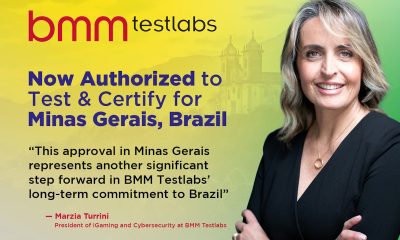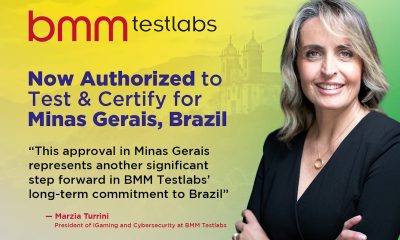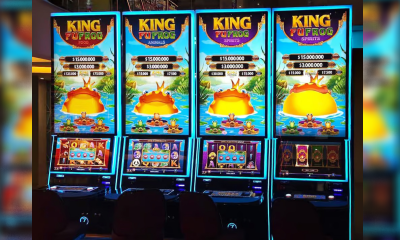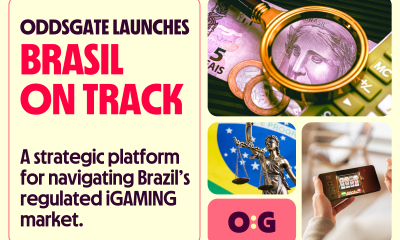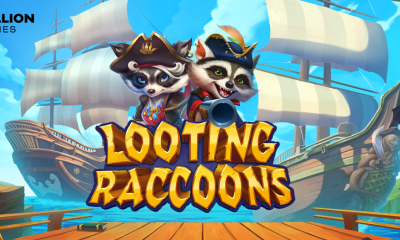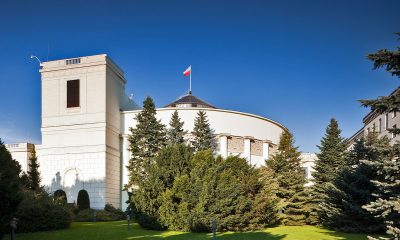Compliance Updates
Endorhina’s Head of Legal reports on the Netherlands’ new gambling law

Jakub, Endorphina’s Head of Legal, shares his thoughts in a detailed report on the Netherlands’ new gaming application process. We learned that starting October 1st, 2021, the Netherlands will finally release their new law regulation for online gambling!
Jakub explains that the market now becomes open for all types of licenses, like bets on events during a sports match, bets on horse races, and much more. We also hear that there are no limits to the number of accepted licenses, as long as you meet all the requirements.
Dive into Jakub’s full report below:
As of October 1st, 2021, the online gambling market in the Netherlands will finally open. The Dutch Senate approved of the Remote Gambling Act in February of 2019 after years of delays. Before this, the Netherlands tried to fight only the worst offenders in illegal gaming. Nearly two years later, the law is finally scheduled to enter in full force. The online gambling licensing application process began on April 1st, 2021, and now we can finally look forward to its official beginning on October 1st.
The market only opens for the following types of licenses:
- Casino games in which the players play against the operator;
- Casino games in which the players play against each other;
- Bets on events during a sports match or on the outcome of sports matches; and
- Bets on the results of horse races and harness racing organized by or under auspices of the Dutch Draf
Market surveillance is done by a regulator – the Netherlands Gambling Authority is responsible also for the licensing process. As mentioned above, the licensing process opened on April 1st 2021, therefore from the date of drafting this article, the applications are just being accepted.
There is no limitation on the number of accepted licenses, therefore anyone who fulfills all requirements of the regulator is entitled to receive a license. The duration of the license is 5 (five) years, and the licensing fee is set at EUR 48,000.
Applicants should have their registered office in the EU or the European Economic Area, some exceptions are, however, admissible. Regarding server location requirements, the Control Database Specification document specifies that: “The legislation requires that the CDB final data repository must be located in the Netherlands physically separated from the operators gambling system. Both may be located in the same data centre if an operator chooses to do so, however, data stored in this main the CDB final data repository must be logistically and safely separated from any other data.”
In order to be entitled to receive the license, the decree states that the continuity of a license must be reasonably guaranteed. Therefore, the applicant for the license shall in any case provide among other assurance report confirming that the applicant is not in bankruptcy, under a moratorium of payments or where the applicant’s assets are not subject to an enforceable attachment.
All online gambling applications shall also be assessed against the criteria as per the policy rules which include operating without a permit. No applicants shall operate on the Dutch market in two years and nine months preceding the date on which the application was submitted and during the processing of the application.
Unauthorized operations are deemed when the following criteria are met:
- The game offer took place on a website whose extension ended in .nl;
- The game offer was wholly or partly in the Dutch language;
- The relevant offer or its provider advertised on TV, radio or printed media aimed at the Dutch market;
- For the games on offer, there was a use of domain name containing terms typical of the Netherlands in combination with the designation of games of chance;
- The website(s) on which the games of chance were offered contained any features from which a focus on the Netherlands can be deduced; and
- For the games of chance offered, it was possible to use means of payment that are exclusively or largely used by Dutch people;
Taxes are calculated from the gross gaming revenue of the operators currently the taxation is 30.1%. The taxation rate was increased from 29% to 30.1% from January 1, 2018, due to loss of income for the state caused by delays in the adoption of the Online Gambling Act. According to press release from the regulator, the gambling tax will be released back to 29% six months after the entry into force of the Online Gambling Act.
Expectations from this market are rather high. The Netherlands took its time – and at a cost of multiple delays, hopefully, they’ve prepared their regulation for the high demands of the gambling industry.
And that’s a wrap!
We hope you enjoyed reading Jakub’s official report on the Netherlands’ new gambling law. If you have any questions, feel free to reach out to us anytime. For now, stay tuned to more insights and new releases coming soon!
Powered by WPeMatico
Compliance Updates
UKGC Publishes Further Data on the Gambling Industry in Great Britain
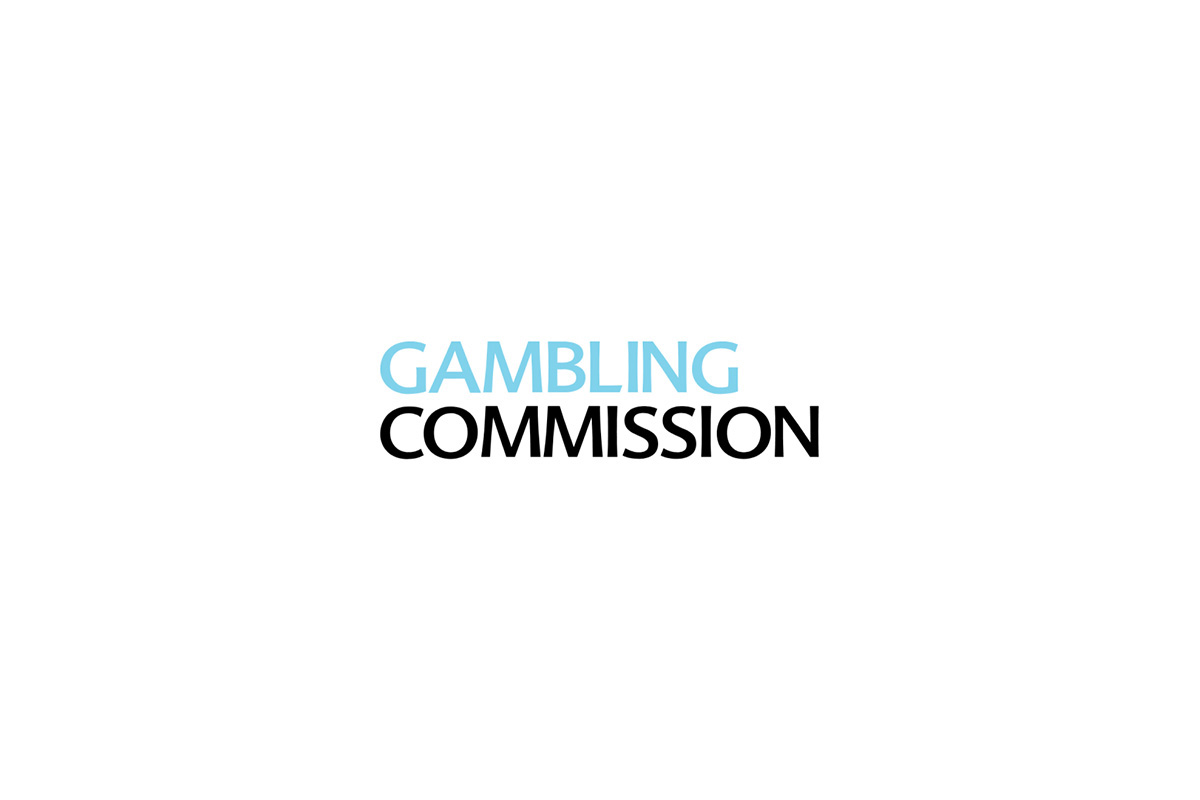
The UK Gambling Commission has published further data on the gambling industry in Great Britain.
The data, sourced from operators, reflects the period between March 2020 and December 2025, inclusive, and covers online and in-person gambling covering betting premises found on Britain’s high streets.
The release compares Quarter 3 (Q3) of financial year 2025 to 2026, with Q3 of 2024 to 2025, looking at how the market has changed in comparative periods over a year.
This is the third quarter since the maximum stake limit for online slots games was introduced. The £5 limit for all adults went live 9 April 2025 and the £2 limit for adults aged 18 to 24 went live 21 May 2025.
The latest operator data shows:
• online total Gross Gambling Yield (GGY) in Q3 (October to December) was £1.5 billion, a decrease of 2% from Q3 the previous year. The overall number of total bets and spins increased 6% Year-on-Year (YoY), to 27.4 billion, whilst the average monthly active accounts in the quarter decreased 2%, to 12.7 million during the same time-frame.
• real event betting GGY decreased by 18% YoY to £530 million. The number of bets decreased 6%, while the average monthly active accounts in Q3 decreased 7%.
• slots GGY increased 10% to £788 million YoY. The number of spins increased 7% to 25.7 billion while the average monthly active accounts in Q3 increased 5% to 4.6 million per month. The GGY and number of spins represented new peaks for this dataset for the third quarter in a row.
• the number of online slots sessions lasting longer than an hour decreased by 16% YoY to 8.9 million. The average session length decreased by 2 minutes to 16 minutes. Approximately 4.4% of all sessions lasted more than one hour, a decrease from 6.2% in Q3 the previous year. A couple of operators have refined their session length methodology during the previous year which will impact year-on-year comparisons on the number of sessions, sessions over one hour and average session length metrics.
• betting premises GGY decreased by 7% to £549 million in Q3 2025 to 2026, compared to the same quarter last year. The number of total bets and spins decreased by 1% to 3.1 billion.
The post UKGC Publishes Further Data on the Gambling Industry in Great Britain appeared first on Eastern European Gaming | Global iGaming & Tech Intelligence Hub.
Compliance Updates
Dabble Continues to Expand U.S. Footprint with Launch in Arizona
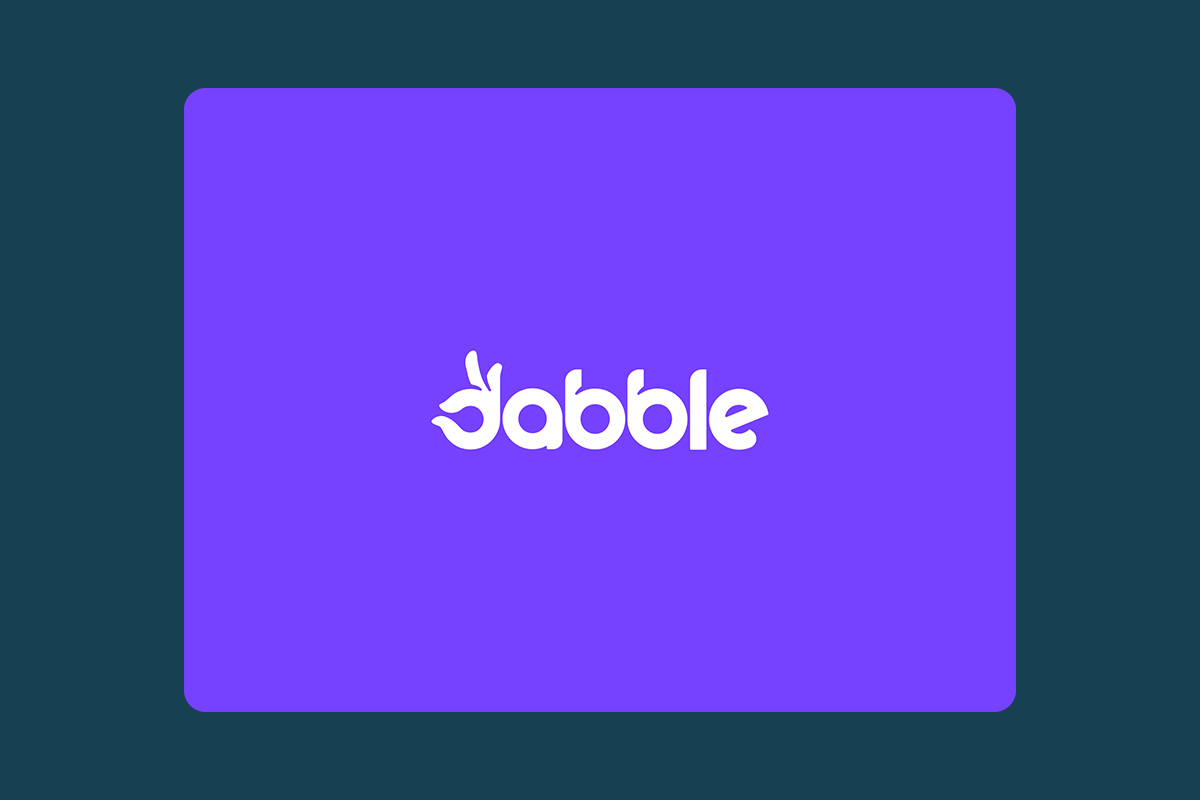
Dabble announced that its platform has officially entered and is now live in the state of Arizona. This further expands Dabble’s regulated U.S. market presence and makes its Daily Fantasy Sports (DFS) offering available to users in one of the country’s most active gaming jurisdictions.
With over 3.4 million Dabblers and $300M+ paid out, Dabble’s community-driven DFS gaming experience shows no signs of slowing down. The app has seen almost 9 million installs and over 102 million entries placed. The social aspect of the app is evident, with 13.6 million messages sent across the Dabble community, where 78% of players follow at least one other player and 42% of all picks are made by players copying or tailing other players’ picks.
The Arizona launch represents a strategic milestone for Dabble as it continues to grow its footprint across legalized gaming markets in the US. Users in Arizona can now access Dabble’s platform in compliance with applicable state regulations.
Dabble continues its impressive growth in the U.S. market, and the launch aligns with the company’s broader expansion strategy as it targets regulated markets and builds long-term scale across the U.S. gaming landscape. Arizona marks the 30th U.S. state in which Dabble is available.
“Arizona is exactly the kind of market built for Dabble – passionate sports fans, high engagement, and a community that loves to play together. This launch reflects our continued commitment to expanding the Dabble community responsibly while delivering an engaging product experience,” said Tom Rundle, CEO at Dabble.
The post Dabble Continues to Expand U.S. Footprint with Launch in Arizona appeared first on Americas iGaming & Sports Betting News.
Compliance Updates
Illinois Gaming Board and Attorney General’s Office Issue more than 60 Cease-and-Desist Letters to Illegal Online Casino and Sweepstakes Operators
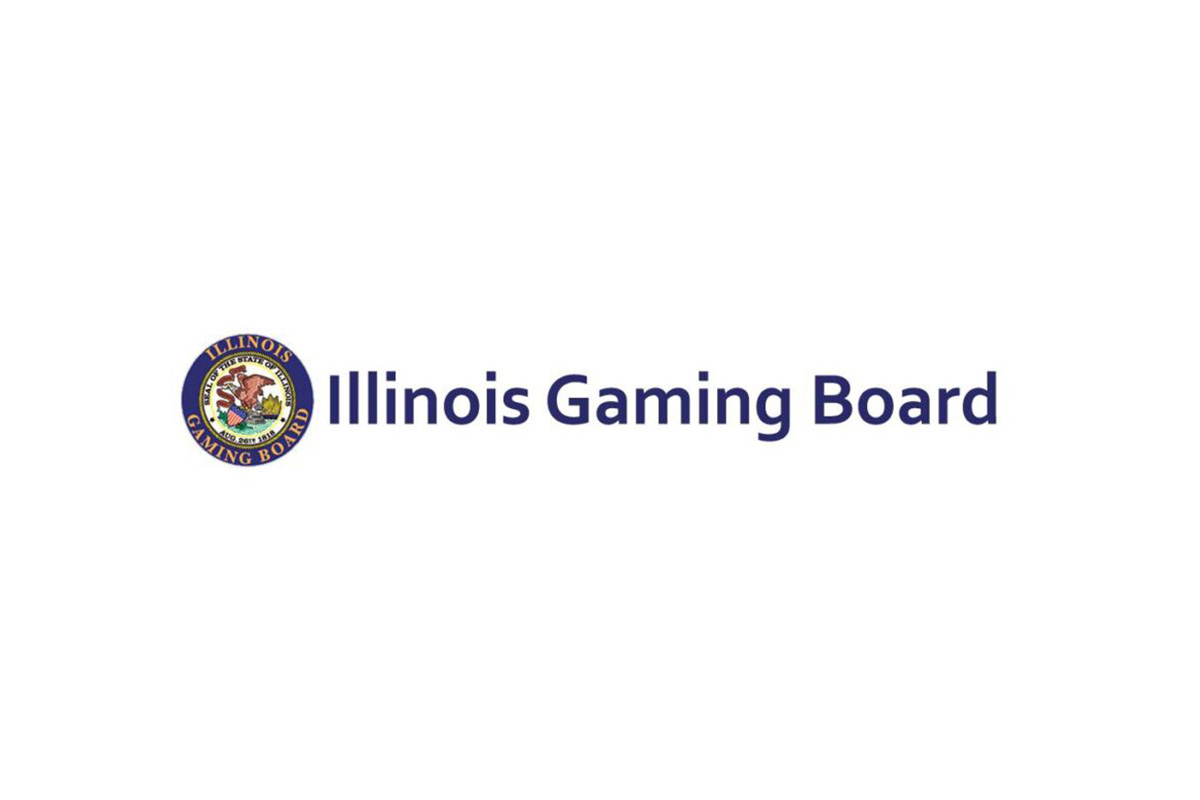
The Illinois Gaming Board (IGB), in coordination with the Illinois Attorney General’s office, has issued more than 60 cease-and-desist letters to entities allegedly operating illegal online casino and online sweepstakes gaming platforms in Illinois.
The cease-and-desist letters demand that entities allegedly operating online casinos or sweepstakes platforms immediately block Illinois residents from accessing their internet sites or discontinue offering prizes to Illinois users. Operators who fail to comply may be subject to civil or criminal penalties under Illinois law. Offering games of chance that award money or other items of value via the internet violates Illinois criminal law.
“Illegal online gambling operations threaten consumer protections, undermine responsible gaming safeguards, and are antithetical to the public’s interest in regulated gaming. The IGB will continue to evaluate all available regulatory and law enforcement tools to combat illegal gambling and to protect Illinoisans,” said Illinois Gaming Board Administrator Marcus D. Fruchter.
Illinois law allows legal gambling only for licensed riverboat casinos, land-based casinos holding an owners’ license, racetracks with organizational gaming licenses, sportsbooks licensed under the Sports Wagering Act, and video gaming licensees licensed under the Video Gaming Act. Illinois law prohibits the operation of internet sites that allow gambling.
“The law is clear: Gambling in Illinois must be properly licensed and regulated. Unlicensed gaming operators put Illinois consumers at risk and undermine the integrity of our regulated gaming market. We will continue to work with the Illinois Gaming Board to protect our residents and hold illegal operators accountable,” said Illinois Attorney General Kwame Raoul.
The post Illinois Gaming Board and Attorney General’s Office Issue more than 60 Cease-and-Desist Letters to Illegal Online Casino and Sweepstakes Operators appeared first on Americas iGaming & Sports Betting News.
-

 Latest News6 days ago
Latest News6 days agoBMM TESTLABS GRANTED NEW LICENSE IN BRAZILIAN STATE OF MINAS GERAIS, EXPANDING ITS PRODUCT TESTING AND CERTIFICATION FOOTPRINT IN BRAZIL
-

 BMM Innovation Group6 days ago
BMM Innovation Group6 days agoBMM Testlabs Secures Minas Gerais License, Expanding iGaming and Sports Betting Certification in Brazil
-

 Colombia6 days ago
Colombia6 days agoZITRO INSTALLS OVER 70 MACHINES ACROSS GRUPO ALADDIN CASINOS IN COLOMBIA
-

 Conferences6 days ago
Conferences6 days agoChampions Club Bound for Dubai
-

 Brasil on Track4 days ago
Brasil on Track4 days agoODDSGATE LAUNCHES “BRASIL ON TRACK”, A STRATEGIC PLATFORM FOR NAVIGATING BRAZIL’S REGULATED IGAMING MARKET
-

 Latest News5 days ago
Latest News5 days agoMillion Games Unveils Looting Raccoons: A Charming Pirate Slot Packed with Features
-

 Central Europe6 days ago
Central Europe6 days agoPoland to Classify Gambling Streaming as Serious Crime
-

 Casino-Groups6 days ago
Casino-Groups6 days agoSebastian Jarosch Becomes Head of AI at Casinos Groups




